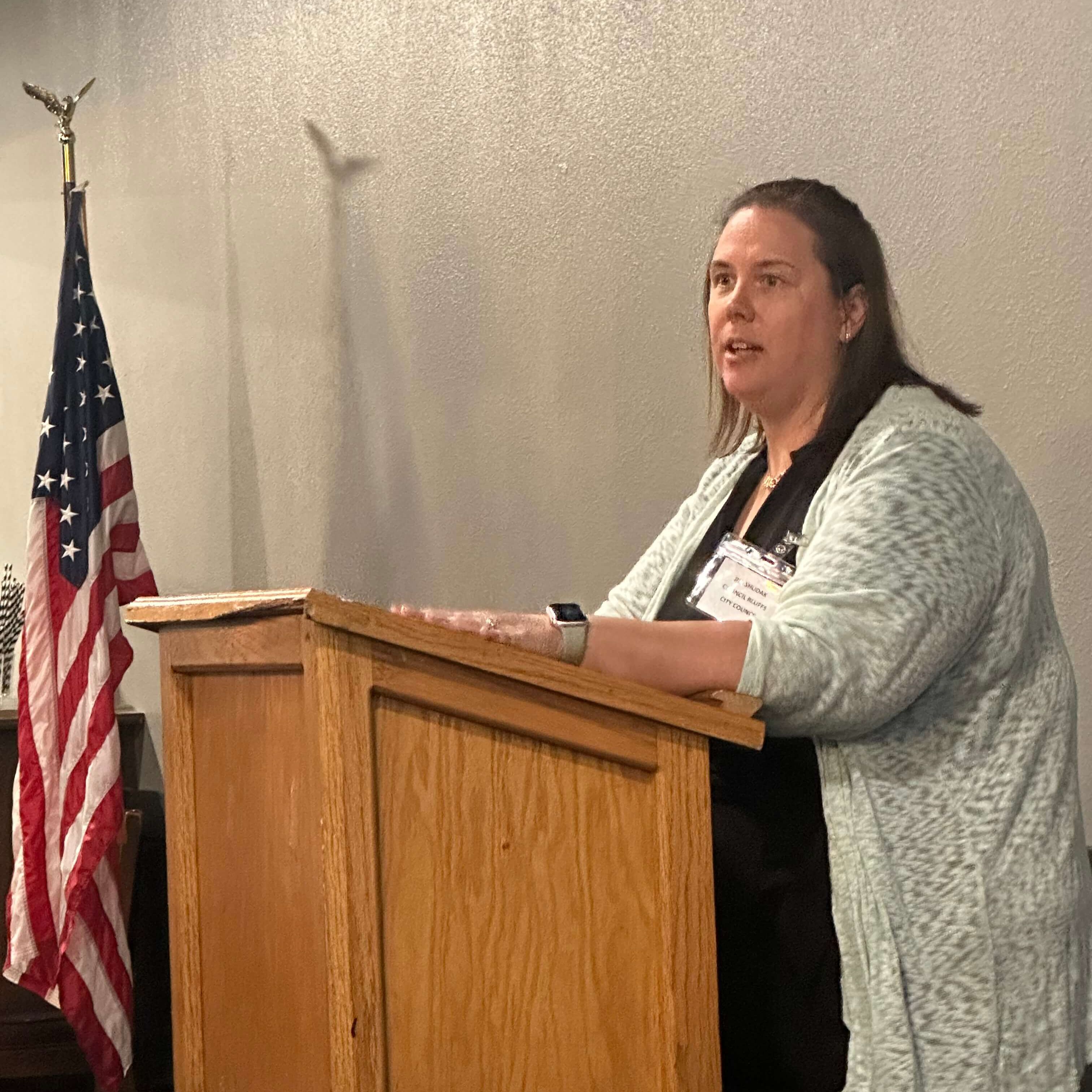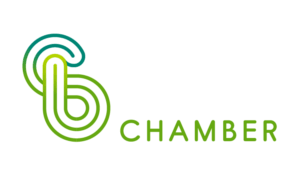
Jill Shudak
Age: 45
Occupation: Product Manager- Lending
Email: Jill@shudakforiowa.com
My name is Jill Shudak, and I’m proud to call Council Bluffs my home. I was born here, raised just outside the city limits, and shaped by the values of hard work, family, and community. I am the youngest of three children and have a wonderful mother and stepfather. Three years ago, I married my husband after seven years of building our life together, and that same spirit of dedication carries into the work I do every day for our city. My roots run deep in labor—both of my grandfathers, my father, and my oldest brother have all been proud union members. Today, I carry forward that legacy by fighting for fairness, equity, and strong representation for working families. Serving as a City Council member and previously on the Board of Education for Council Bluffs Community Schools, I’ve worked to advocate for our community from the ground up. I’m running for Mayor of Council Bluffs to build a future that reflects our pride and resilience. That means uplifting every citizen and respecting the dedicated city employees who keep our community strong. With my experience in city budgets, bidding processes, and significant projects, I’m ready to ensure quality, transparency, and long-term growth as we take on the challenges ahead. I’m excited to share this journey with you, and I’m asking for your support as we work together to shape a Council Bluffs built on pride, progress, and partnership.
| Question 1:
Population Growth & Economic Vitality Many residents and business leaders believe that growing the population of Council Bluffs is critical to near- and long-term economic vitality, workforce sustainability, and community vibrancy. Others are more cautious or uncertain about the need for growth, citing a desire to keep the community the way it is.
"Council Bluffs has experienced little to no population growth over the past 50 years and reversing that trend is critical to sustaining our economy and workforce. We need to focus on attracting and retaining young professionals and families. My goal is for the city to grow by 2% yearly. This rate of growth is attainable without straining city services. A key strategy is to ensure affordable, high-quality housing options, ranging from starter homes to modern rentals and everything in between, so people can build their future here. We should also invest in family-friendly amenities, such as parks, trails, childcare, and cultural spaces, that make Council Bluffs a place where people would want to reside. Expanding education and workforce partnerships is equally essential. Strengthening connections between local schools, Iowa Western Community College, UNO, UNMC, and employers can create clear pathways from education to good local jobs. Incentives for businesses to offer internships, apprenticeships, and career training will help retain homegrown talent. Finally, the city should look to the Chamber of Commerce and Advance Southwest Iowa Corporation to attract new businesses that offer good-paying jobs and career opportunities. Along with a robust arts program via the Hoff Center and a welcoming, inclusive culture, these efforts will make Council Bluffs more attractive to young workers and families while building a resilient workforce." |
| Question 2:
Attracting and Retaining Workers and Families Building and maintaining a strong workforce, particularly young professionals and families, is important to ensuring a strong future workforce and a vibrant local economy.
"I would start by strengthening partnerships with local schools, community colleges, and union trade programs to attract and retain young workers and families. The schools are the cornerstones of any community. The focus on working with the multiple school choices in our community needs to be a greater priority for the mayor. For those entering into the workforce in our city, apprenticeships and career pathways would lead to good-paying, stable jobs right here in the area. Expanding affordable starter homes and quality rental options will help young families put down roots. And there must be various housing options, including apartments, townhouses, row houses, and standalone housing. Along with housing, quality of life is also essential. Childcare, parks, trails, and cultural amenities make Council Bluffs a great place to live and raise a family. And bringing back a sense of community pride is essential. Council Bluffs is a vibrant, affordable community that gives young people leadership opportunities to shape its future." |
| Question 3:
Role of City Government in Economic Development Economic development is increasingly competitive across the Omaha/Council Bluffs metro, the Midwest, and the nation. Communities are vying for limited business investment, talent, and development opportunities. While these efforts are often driven by private and nonprofit partners, city government plays a vital role in creating the conditions for success through policies, infrastructure, incentives, and collaboration.
"Economic development is highly competitive across the Omaha/Council Bluffs metro, the Midwest, and the nation. Communities are all striving to attract investment, talent, and development opportunities. I believe the role of city government is to be a supportive partner to organizations such as the Chamber of Commerce and the Southwest Iowa Initiative, which are already leading recruitment and business development efforts. These groups bring the expertise and connections, while the city's role is to create the conditions for success. The city can do this by investing in infrastructure. The roads, utilities, broadband, and public spaces help enable growth, and we streamline the permitting and zoning processes to improve businesses' efficiency and predictability. Using incentives wisely, focusing on projects that create long-term jobs, strengthen the tax base, and revitalize key areas would support workforce development. These partnerships, along with schools and training programs, will enable labor pools to enhance the quality of life through housing, transportation, recreation, and cultural amenities that attract and retain employers and employees. By focusing on these priorities, the city strengthens rather than duplicates the work of its economic development partners. This collaborative approach positions Council Bluffs to compete successfully for new business investment while ensuring existing businesses continue to grow and thrive." |
Question 4:
Fiscal Responsibility & City Budgeting Developing and managing the city budget is one of the most important responsibilities of elected officials. A responsible budget must reflect community priorities, comply with legal and financial constraints, and respond to changing economic conditions. Understanding how city revenues are generated, and how those funds can and cannot be used, is critical to making sound decisions.
What experience do you have with budgeting, particularly in government, business, or nonprofit settings? Share your understanding of how a city budget works, including major sources of revenue and how city services are paid for. How would you approach developing and monitoring the city’s budget? What city services or projects would you prioritize?
"I bring extensive experience in managing multi-million-dollar budgets, meeting deadlines, and communicating project updates. In previous roles, I ensured complex financial plans were executed on time and within budget, while ensuring that projects met both fiscal and operational goals. This background has given me a strong understanding of how to align financial oversight with day-to-day operations.
A city budget is both a financial plan and a reflection of community values. Revenues generally come from property taxes, sales taxes, service fees, and intergovernmental funding. These funds support essential services, including public safety, public works, utilities, transportation, housing, and community programs. Some funds are restricted for specific uses, while general fund dollars allow more flexibility in addressing priorities.
If entrusted with developing and managing the city’s budget, I would begin with an internal review of every department within the first 90 days. This audit will help identify current strengths, challenges, and opportunities for efficiency. From there, I would take a disciplined and transparent approach: engage the community, project revenues conservatively, fully fund core services, and maintain reserves for long-term stability. I would closely monitor progress against the budget, provide regular updates, and make mid-year adjustments as needed.
My priorities would include public safety, maintaining reliable infrastructure, and ensuring essential city services are protected. I would also prioritize strategic investments in affordable housing, economic development, and community amenities. With my proven experience in managing large budgets and my knowledge of contracts and construction, I am confident in my ability to ensure projects and services are delivered effectively, responsibly, and in line with community priorities."
| Question 5:
Downtown & Corridor Redevelopment Vibrant, well-designed corridors and a thriving downtown are key to a city’s identity, perception, and long-term economic momentum. In Council Bluffs, areas such as First Avenue, West Broadway, the riverfront, and the historic downtown, among others, serve as gateways to the community and focal points for housing, business, entertainment, and civic life. Redevelopment of these areas is central to attracting new investment, residents, and visitors.
"I will focus on completing the development of the city-owned land on First Avenue and East Manawa. In addition, completing the Riverfront development at the old Playland Park area will create an exciting opportunity to establish new destination areas within the city. We can create inviting spaces that attract new residents, visitors, and investment by finishing these projects. Vibrant, well-designed corridors and a thriving downtown are essential to Council Bluffs’ identity, perception, and long-term economic momentum. First Avenue, West Broadway, the riverfront, and our historic downtown are all gateways into the community and serve as focal points for housing, business, entertainment, and civic life. To spur redevelopment, I support using a combination of public-private partnerships, targeted tax incentives, and infrastructure investments that make these areas shovel-ready for businesses and housing. Strategic use of tools such as tax increment financing (TIF), workforce housing incentives, and streamlining the permit process can accelerate progress. Equally important is ensuring high-quality design standards and community amenities so that these corridors become destinations that strengthen our city’s appeal and economic vitality." |
